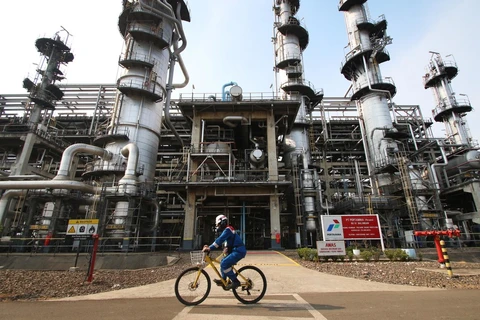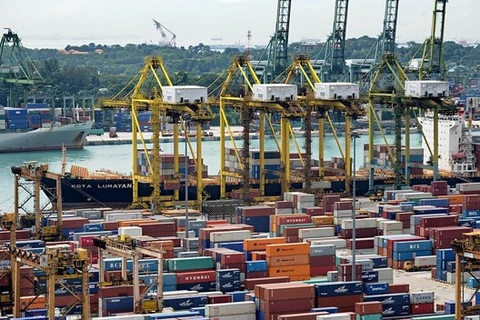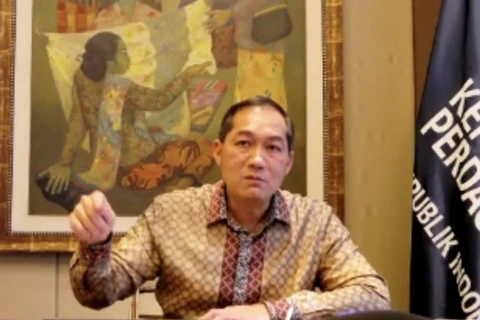 Indonesia had the largest food delivery service market in Southeast Asia in 2020. (Photo: thejakartapost.com)
Indonesia had the largest food delivery service market in Southeast Asia in 2020. (Photo: thejakartapost.com) Jakarta (VNA) – Indonesia had the largest food delivery service market in Southeast Asia in 2020 in terms of gross merchandise value (GMV), according to a report by venture capital firm Momentum Works.
The GMV of the country’s food delivery services was 3.7 billion USD, accounting for 31 percent of the total food delivery value of Thailand, Singapore, Malaysia, the Philippines, Vietnam and Indonesia itself.
Last year, the total GMV for the region was 11.9 billion USD, up 183 percent from the previous year and exceeding the 91 percent growth rate from 2018-2019.
At a virtual press conference on January 28, Momentum Works chief operating officer Yorlin Ng said one of the reason for this big growth was COVID-19.
Multiservice app company Grab contributed nearly half of the region’s GMW with 5.9 billion USD, followed by its competitors Foodpanda, Gojek, Deliveroo, LineMan and Now. Grab has surpassed Gojek’s food service market share in both Indonesia and Southeast Asia in general.
The report comes as many Indonesians face tighter mobility restrictions that limit the occupancy and operational hours of restaurants in an effort to contain the spread of COVID-19.
The restrictions caused the number of visitors to retail and recreation locales, which include restaurants, to fall by 32 percent nationally from the typical level seen in the January to February period, according to Google COVID-19 Community Mobility Reports data from January 24.
As more consumers ordered food from home, 750,000 small businesses joined Gojek’s GoFood delivery service last year, an increase of 50 percent from the year before, according to a company press release published on January 22.
GoFood, which entered the market in 2015, reported twentyfold growth over the last four years. The platform now offers more than 20 million food and beverage items.
The food delivery service market grew rapidly because consumers were afraid of contracting COVID-19 at restaurants, said Bhima Yudhistira, an economist at the Institute for Development of Economics and Finance.
Bhima added that more people had started food and beverage businesses without dine-in services, selling their products solely on food delivery platforms, and the trend will keep rising this year./.
VNA























